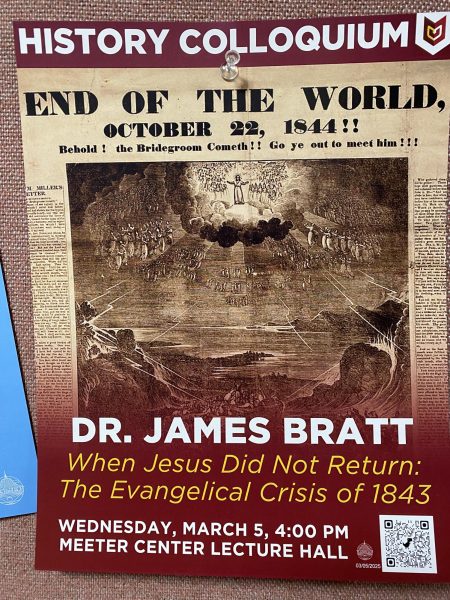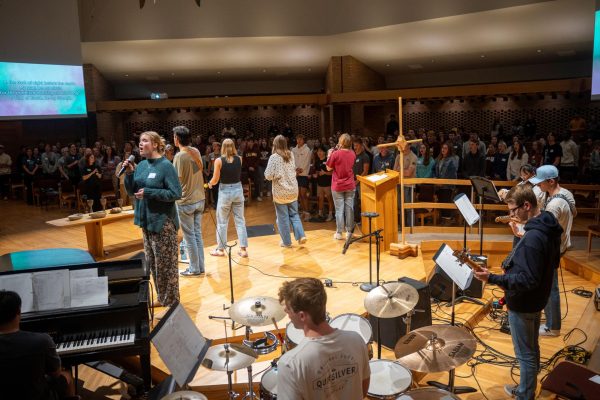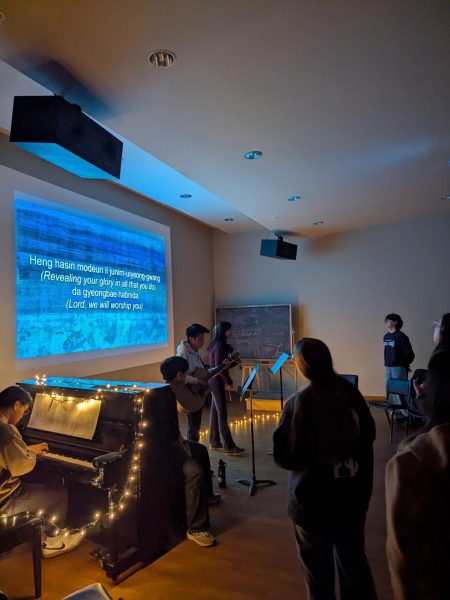Nashville Statement sparks controversy among Christians
The Nashville Statement sparked controversy across the Christian spectrum last month with its collection of 14 affirmations and denials regarding human sexuality. The articles, finalized in the Tennessee capital, stress that all sexual relations should be within heterosexual marriage and that there are two distinct genders, each with specified, Biblical roles. Working in partnership with a commission of the Southern Baptist Convention, the Council for Biblical Manhood and Womanhood created the statement to respond to a “Western culture [that] has become increasingly post-Christian.”
Several prominent pastors and theologians–including John Piper, Francis Chan, James Dobson and Rosaria Butterfield–have signed the document. Shortly after its release, the statement prompted criticisms from political and religious leaders alike. Nashville’s mayor, Megan Barry, tweeted that the document was “poorly named” and that “it did not represent the inclusive values of the city and people of Nashville.” Christian figures from across the spectrum also decried the statement, saying it distanced and ostracized LGBT+ persons from the church.
Calvin College, as the college of the Christian Reformed Church (CRC), holds to the denominational views of human sexuality, as clarified in Synods 1973 and 2002:
“[W]e believe that homosexual orientation is not a sin, and we strive to love our gay, lesbian, and bisexual students as ourselves, as God expects of us,” the college states on its website. “We also affirm that physical sexual intimacy has its proper place in the context of heterosexual marriage.”
Chaplain Mary Hulst said that many of the writers of the Nashville Statement differ from Calvin’s theological perspectives and therefore hold different beliefs on sexuality, especially on the sinfulness of LGBT+ orientation.
“You can be a celibate, gay Christian and live a whole, flourishing life. The Nashville Statement doesn’t allow for that at all,” said Hulst.
Julia Smith, director of the Sexuality Series, also found the statement’s approach limiting and often “othering” of LGBT+ people, especially in its use of outdated language. She disagreed with its definition of orthodoxy, criticizing its motivations as an unnecessary — and often
harmful —“desire to draw a line in the sand.”
“Creedal Christian orthodoxy is about the nature of God, Christ and salvation, atonement, the church and fall and redemption,” Smith said. “It’s not about sexual orientation or gender identity.”
Both Hulst and Smith expressed concern with the statement’s implications for pastoral and relational care for LGBT+ friends and family members.
“Statements made at 20,000 feet can never do that work,” Smith said. “We need the work of the body of Christ. Being there with one another, working with one another and giving grace, not jumping to judgments.”
Hulst argued for a posture of humility:
“What you try to do in ministry is respond to people’s suffering. One of the groups in our society that is suffering are people who are gay who want to follow Jesus because we have not made it easy for them in any way.”
Albert Mohler, a signatory of the Nashville Statement and president of Southern Baptist Theological Seminary, wrote in the Washington Post that “we in fact are acting out of love and concern for people who are increasingly confused about what God has clarified in Holy Scripture.”
“The main goal of the Nashville Statement,” he wrote, “is to point all persons, regardless of the form of our struggles over sexuality or self-identity to salvation and wholeness in Christ.”
As a progressive response to the controversy, Lutheran pastor Nadia Bolz-Weber and House for All Sinners and Saints released the Denver Statement, countering Nashville’s affirmations and denials with a series of their own.
In reply to Nashville’s exclusively definition of marriage as a “covenantal, sexual, procreative, lifelong union between one man and one woman”–the Denver congregation wrote, “We affirm that God created us as sexual beings in endless variety. We deny that the only type of sexual expression that can be considered holy is between a cis-gendered, heterosexual, married couple who waited to have sex until they were married.”
No matter their perspective, Smith said, Christians need to emphasize God’s love in the LGBT+ conversation. “We have to start with the fact that we’re all in the image of God and loved by Him.”







Stephanie Hoekstra • Oct 8, 2017 at 8:36 am
Thanks Luke
Luke • Oct 3, 2017 at 9:47 am
In a world that wants to change 2000 year old Church doctrines, something like the Nashville statement becomes necessary to the Church. Only one side can be right, and the one that has consistently held firm in the universal Church is the one proclaimed in the Nashville Statement.
It in no way implies that we should reject or hate LGBT+ people, but simply maintains a certain orthodox definition of marriage. This is not a hateful statement, but a loving one. We care for the LGBT Christian community, which is why we stand against immoral practice in the Church. Any child can get mad at their parents for creating boundaries, but boundaries of love can save a life. We are all sinners, but our sin is never justified. Love the sinner, love the sinner.
Pray for spiritual renewal at Calvin.
Josh • Sep 24, 2017 at 5:13 pm
I dont see how the college’s statement or the CRC statement is any different from the Nashville statement. Also, the Nashville statement never said that celibate, gay man can’t live a fully flourishing life for God. Can somebody enlighten me here?
Luke • Oct 3, 2017 at 9:49 am
It’s definition isn’t different from that of the CRC, the Nashville statement isn’t excluding people, only certain practices. It is a safeguard for souls, not a tool of division.